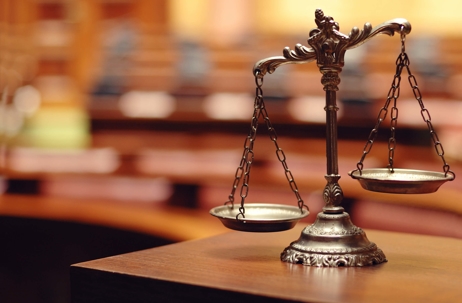A key component to developing a comprehensive defense strategy against criminal charges involves a doctrine known as the “exclusionary rule.” This blog discusses the nature of the “exclusionary rule” and how it works to protect criminal defendants and the integrity of the criminal justice system.
For more information, schedule your free consultation with The Law Office of Wyndel G. Darville, PLLC.
Is the Exclusionary Rule in the Constitution?
Under the exclusionary rule, evidence that the government obtains in violation of an individual’s constitutional rights is barred from admission at their trial. This rule functions to deter law enforcement from disrespecting individual rights to bolster a criminal prosecution and to preserve the judicial integrity of the courts.
Courts have held that such evidence is “fruit of the poisonous tree” that taints the integrity of a criminal prosecution. Nardone v. United States, 308 U.S. 338, 342 (1939).
The exclusionary rule is primarily based on the following U.S. constitutional amendments and their Florida state counterparts:
- The Fourth Amendment: This amendment preserves a person’s right to privacy by prohibiting the government from conducting unreasonable searches and seizures.
- The Fifth Amendment: This amendment guarantees a person’s right to be free from government-compelled self-incrimination.
- The Sixth Amendment: This amendment memorializes an individuals’ right to counsel in a criminal proceeding, as well as their right to confront their accuser.
Thus, if law enforcement discovers evidence to use against the accused by searching their home without a warrant, or without probable cause, courts will hold such evidence as inadmissible. By dismissing such evidence, law enforcement agents will theoretically take care to comply with the warrant requirement before searching a person and their private property.
Limitations on the Exclusionary Rule Under the Constitution
Many people believe that the exclusionary rule if misapplied can result in the unintended consequence of letting people off the hook on a technicality when they are clearly guilty of the crimes for which they’re charged. Courts have restrained themselves from expanding the exclusionary rule, keeping in mind its protective function in ensuring that the criminal justice system’s integrity is preserved.
Thus, the U.S. Supreme Court has qualified the application of the exclusionary rule by balancing the constitutional benefits of exclusion against the ensuing “substantial social costs.” Hudson v. Michigan, 547 U.S. 586, 591 (2006).
Courts have established the precedent that defines the bounds of applying the exclusionary rule in certain circumstances. For example, only individuals whose rights were personally violated have standing to request the court to enforce the exclusionary rule.
Procedures for Suppressing Evidence Under the Exclusionary Rule
Under Rule 3.190 of Florida’s rules of criminal procedure, “a defendant aggrieved by an unlawful search and seizure may move to suppress anything so obtained for us as evidence because:
- The property was illegally seized without a warrant;
- The warrant is insufficient on its face;
- The property seized is not the property described in the warrant;
- There was no probable cause for believing the existence of the grounds on which the warrant was issued; or
- The warrant was illegally executed.”
Thus, a request to suppress evidence is effected through submitting a motion to suppress evidence under one of the above categories. A motion to suppress is typically filed before the commencement of trial before a jury. This helps promote efficiency by preventing the need to remove the jury so the court can hear arguments as to whether specific evidence should be suppressed.
Consult The Law Office of Wyndel G. Darville, PLLC
You deserve to benefit from the skill and experience of a competent and compassionate criminal defense attorney in Sarasota. For over 15 years, I have dedicated my legal career to preserving and protecting the U.S. Constitution. As a former civilian prosecutor, military prosecutor, defense attorney, and senior defense counsel for the U.S. Army Reserve, I have gained invaluable insight into the criminal defense process. Working off this experience, I have achieved case dismissals and reduced criminal charges in an effort to preserve the integrity of the criminal justice system.
Call my office at (941) 564-5319 to arrange a free 30-minute consultation about your legal rights and options.

